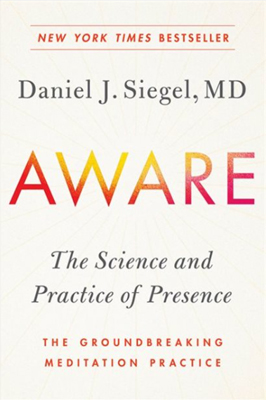As many staff and students have returned to school – a roller coaster of emotions may be experienced. Excitement, anxiety, anticipation, or perhaps even fear. For some, the decision to return was a choice made freely, while for others it was borne out of necessity.
If you fall into the latter group, the emotional impact of returning to school – to a world that may feel almost unrecognizable – will be more challenging.
If left unattended, the fear and uncertainty can create emotional suffering. To minimize those negative outcomes, you are encouraged to review the activities below designed to cultivate a healthy mind and promote improved coping.
How to Use “Time” To Your Advantage
Time In – this is time you may already spend engaged in a mindfulness practice like yoga or meditation. This inward reflection can help to open awareness and cultivate kind intentions.
Connecting Time – this is the time you put into intentionally connecting with others, even if you can not be in their immediate physical presence. It can also be time to connect with nature. Finding time to connect with people and the planet can help with the sense of isolation we may feel these days.
Focus Time – this is time spent focusing on something external with discipline. For example, it could be reading a book for 30 minutes with no distraction, which means turning off all devices. Research suggests when we focus our attention like this, we learn more, remember more and enjoy the experience more.
Play Time – this does not refer to sports, rather doing something that is playful, allowing you to laugh and be spontaneous – without judgement or feeling there is a right or wrong way to do it. This is often best shared with others and the enjoyment of the unfolding moment is the focus. Too often adults lose their sense of playfulness. Coping with the stress of our current world can be enhanced when we keep our humour and vitality alive.
Physical Time – this is the time to move your body. It is easy to become trapped behind a screen. Our brains, body and coping are all improved with regular movement of our body – walking, yoga, playing badminton, kicking a ball around – it doesn’t matter the activity as long as it gets you moving.
Down Time – this is space to not do anything specific and just chill out. Our minds need this. Downtime is different than the moments when we find ourselves unintentionally distracted – it involves intentionally letting our minds wander. This might involve listening to music, drawing on a pad of paper, listening to nature or watching the clouds.
Sleep Time – this is important for many reasons, especially because sleep directly affects inflammation in the brain. It is also critical because when we get seven to nine hours of quality sleep, the toxins secreted by active neurons during our waking hours are cleaned up. Think of it this way: the 16 hours you are awake is like a big party for your neurons. They are doing lots of stuff. The party’s over and the cleanup crew comes in. Without a regenerative clean-up period, we are likely to have increased brain inflammation and decreased ability to focus, remember and stabilize our mood.
If you knew that being intentional with your time, even for a short period, could boost your emotional coping – would it be worth the effort? I hope so. Consider choosing one of the above strategies and making a practice of using time in this new way. And when you feel you have mastered that, feel free to try another.
Building enhanced coping and resilience may be a slow process but without intentional efforts, progress is unlikely to be made. Invest the time to promote your mental health.
A Book We Love
Aware provides practical instruction for mastering the Wheel of Awareness, a life-changing tool for cultivating more focus, presence, and peace in one’s day-to-day life.
Whether you have no experience with a reflective practice or are an experienced practitioner, Aware is a hands-on guide that will enable you to become more focused and present, as well as more energized and emotionally resilient in the face of stress and the everyday challenges life throws your way.











